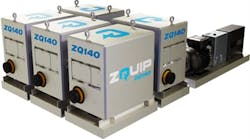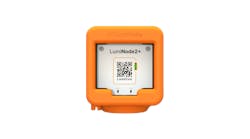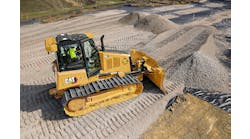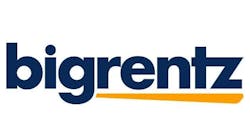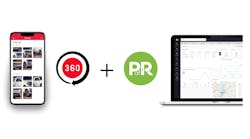ZQuip, part of Moog Construction, has launched its ZQuip to convert diesel-powered construction fleets into zero-emissions machines that create all-electric job sites. The ZQuip energy kit includes:
· 70- and 140-kWh energy modules, which are interchangeable across all machines,
· a conversion kit consisting of a battery harness, electric motor, and AI thermal management,
· IoT and connectivity to monitor a fleet’s activities and battery-life while eliminating range anxiety and ensuring the highest level of uptime.
“The 700V ZQuip Energy Modules are at the core of this innovation. ZQuip modules are interchangeable across any machine we convert regardless of size, type, or manufacturer, and will enable a level of serviceability, run-time, and value that is far greater than current battery solutions,” said Chris LaFleur, managing director for ZQuip.
ZQuip first demonstrated this concept with a CAT 308, creating a ZQuip battery-electric version of the classic diesel-powered 8-ton excavator, making it one of the most powerful, energy-efficient and zero-emissions 8-ton excavators available.
Calling for an innovative approach to zero-emissions
According to LaFleur, creating a zero-emissions construction site requires developing a fleet of zero-emissions machines that can work cohesively to create value. That means going beyond the electrification of one machine at a time and, instead, using ZQuip to convert huge swaths of machines simultaneously so that energy and performance are optimized across a fleet, not just machine by machine.
ZQuip’s approach gives customers zero-emissions machines with the exact battery capacity for the job to be done. LaFIeur said if on a construction site with six ZQuip machines, with two needing 800 kWh of battery capacity while four require 400 kWh each, the total energy for the day equals 3.2 mWh. In contrast, today’s traditional all-electric vehicles might come equipped with an 800-kWh battery on each of the six machines mentioned above; in this scenario, the owner would pay 50 percent more for battery capacity that would go unused.
With ZQuip, once project managers determine the work to be done, they match the fleet’s energy needs with battery capacity. They then optimize each machine by installing the appropriate number of ZQuip Energy Modules and, if necessary, swap them across any machine on the job site. ZQuip’s onboard AI Thermal Management technology alerts project managers well before the point when actual energy outstrips what is planned. This ensures project managers have additional ZQuip Energy Modules on site and ready to swap out.
LaFleur said the company is not selling excavators, loaders or other machines. “The innovation with ZQuip is this: To enable customers to have a zero-emissions work site, we are creating fleets of zero-emissions machines that make the most sense from the perspective of productivity and cost,” he said.
Moog Construction is a business venture of Moog Inc., a worldwide designer, manufacturer, and integrator of precision control components and systems. While Moog has worked with the construction industry for more than 30 years, Moog Construction is accelerating the electrification of construction machines and autonomous robots on construction sites. To learn more about ZQuip, visit https://zquip.tech/.
